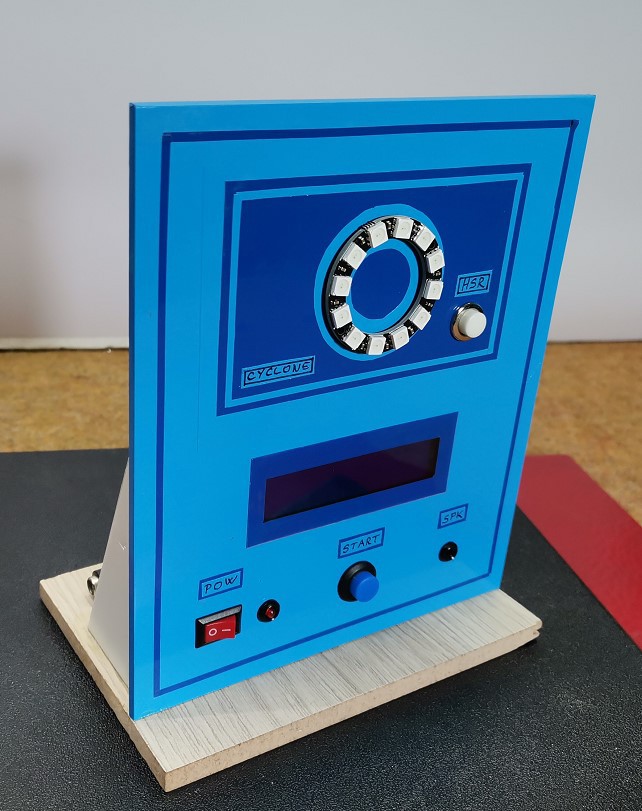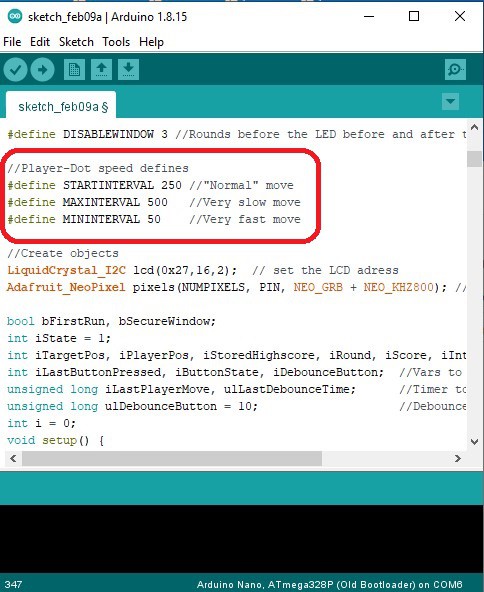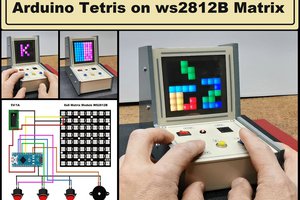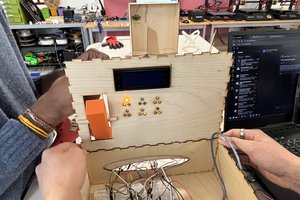In one of my previous videos(), I presented you the same game, but on a large ring consisting of 60 Leds, which contained several levels.
This time I use a small ring with 12 Leds and the game does not contain levels but is a continuous game until once the target marker is not hit.

In addition, there is an LCD display that shows highscore and current round.
The code was taken from Joern Weise's GitHub page (https://github.com/M3taKn1ght/Blog-Repo/tree/master/Cyclone), and I made some modifications.
First I shortened the way of testing the LEDs, and then added different sounds for each segment of the game so that it is now much more interesting.
The device is very simple to build and consists of only a few components:
- Arduino nano microcontroller
- 12 Leds ring with WS2812 Led chip
- 16x2 LCD display with I2C communication protocol
- two buttons
- and Buzzer

If you want to make a PCB for this project, or for any other electronic project, PCBway (www.pcbway.com) is a great choice for you. PCBWay is one of the most experienced PCB manufacturing company in China in field of PCB prototype and fabrication. They provide completed PCB assembly service with worldwide free shipping , and ISO9001 quality control system. Also, on their site there is an online gerber viewer where you can upload your gerber and drill files to render your board.

As for the gameplay, as I mentioned before, in this case there are no levels with increasing speed, but each successive round starts with a randomized speed, and generally the speeds can be easily changed in the code in the lines:
#define STARTINTERVAL 250 //"Normal" move
#define MAXINTERVAL 500 //Very slow move
#define MININTERVAL 50 //Very fast move

Now let's see how the device works in reality.
When turning on the game, all LEDs light up sequentially accompanied by an appropriate sound effect, and a corresponding message about the test on the LCD display.

Next, by pressing the button the game starts
The goal is to press the button at the moment when the rotating diode is located exactly on the static diodes.
In the first two levels, three diodes are static, and in the next levels only one.
The number of laps completed and the score are shown on the display.

If we fail to hit the red Led, the game ends, and High Score appears on the display.

The number of laps completed and the score are shown on the display.
Otherwise, the high score is recorded in the eprom of the microcontroller so that it is saved even after the reset.

f we want to delete the high score, when turning on, we hold down the HSR button.
And finally, the game is mounted on a PVC board with a thickness of 3 mm and covered with self-adhesive colored wallpaper.

 mircemk
mircemk




Hi. Your project reminds me of the minigame from "Atomic Heart"
https://youtu.be/7neeN1mo9GA?si=RnvU3vfsHdYiOAHI&t=32
How about adding a round display in the center of the circle? It will make the game more stylish.